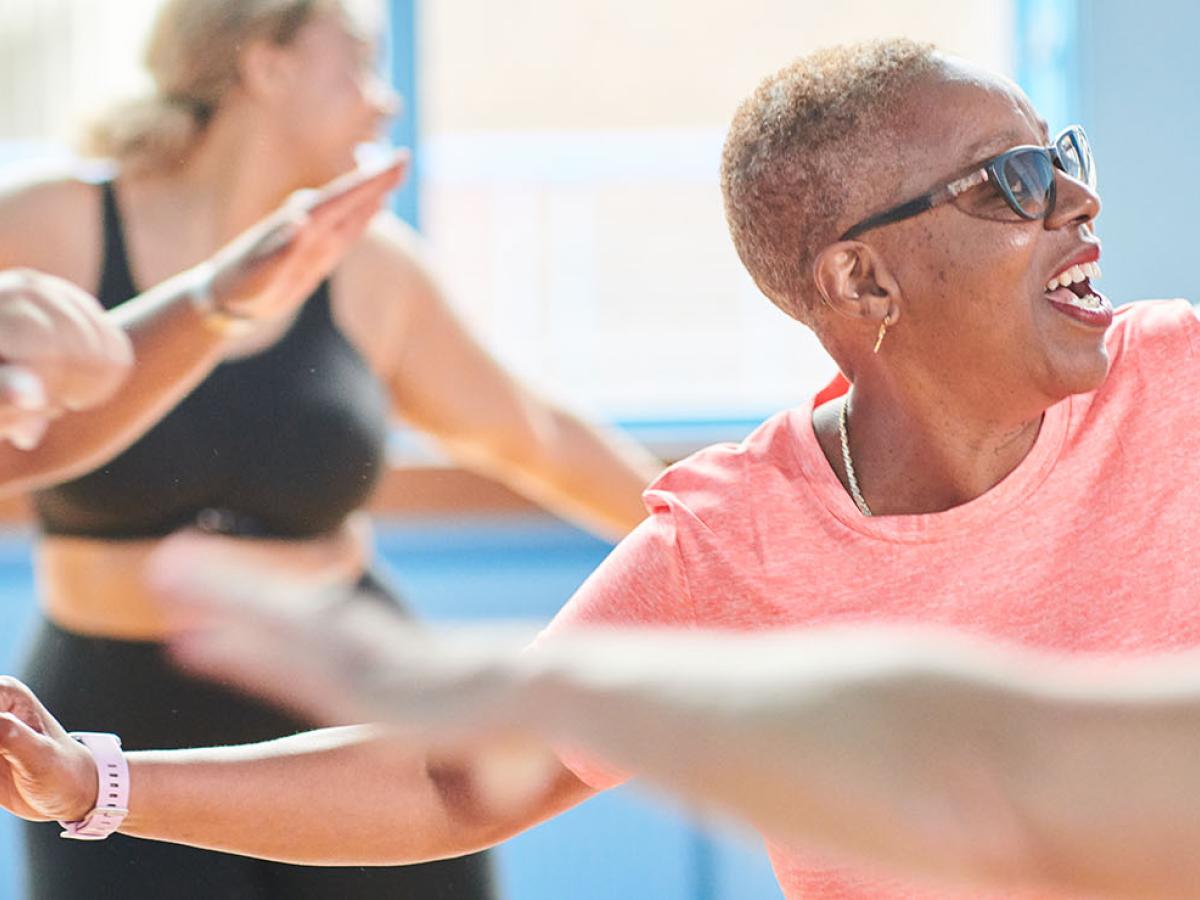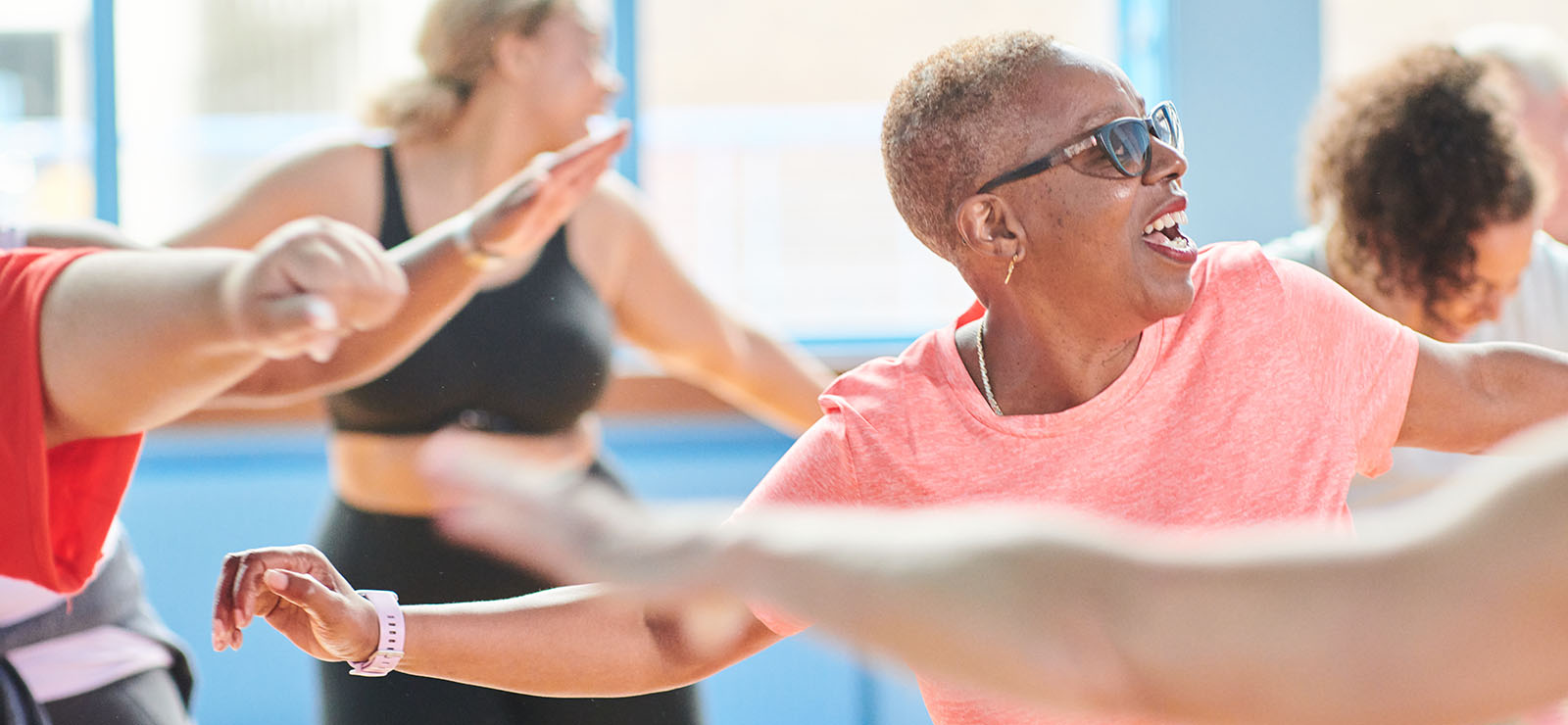June 23, 2025

When babies see themselves in mirrors, the response is typically one of wonder and joy. They embrace their baldness, pudgy arms and gap teeth. But as time goes on — and we develop a body image — those glances in the mirror can become less joyful and more critical.
The shaping of your body image often depends on how you were raised, your exposure to media and the people you spend time with. Body image is how you see yourself, and it’s a subjective view based on three factors:
- Your personal assessment of your body’s proportions
- How you feel about how you look
- Your general beliefs about body shape and appearance
The good news is that because body image is subjective, it’s within your control.
“It’s possible to have a positive body image no matter what your body looks like or what stage of life you are in,” says Katy Williams, MD, an MU Health Care family medicine doctor and bariatric medicine specialist. “With that body positive mindset often comes a desire to take care of your body and be in the best health possible.”
Benefits of a Positive Body Image

How you view yourself and your body affects your physical and mental health. When you love and appreciate your body for what it can do, Dr. Williams says you are more likely to take care of it. There’s also a significant correlation between poor body image and mental health disorders, such as eating disorders and depression.
“Mental health challenges, such as depression, anxiety, social isolation and suicidal ideation, are tied into our identity and how we see ourselves in the world,” Dr. Williams says. “When we view our bodies in a negative light, it can impact the way we show up — or don’t show up — in the world and for ourselves.”
Positive body image in adulthood is associated with better overall well-being and quality of life. It’s also linked to more positive sexual experiences in women.
How Age-Related Body Changes Affect Body Image
Your body image begins to form in childhood and can shift throughout life. But even if you are a body positive person, some female life stages can alter your body composition and make loving your body a challenge.
“Men go through body changes during puberty,” Dr. Williams says, “but women tend to experience more of the large, hormonal shifts that change your body composition.” Knowing what to expect from those hormonal shifts can help you prepare for body changes and protect the way you view yourself.
The hormone-related milestones that most affect body image include:
Puberty
Girls go through a lot of changes as they become women. Besides the acne and hair growth that most teenagers experience, teen girls also develop breasts, gain body fat and become curvier in preparation for reproduction. While those changes are beautiful, they happen when your body is ready — not necessarily when it’s happening to everyone else. As a bonus, puberty changes can also change your center of gravity and make you feel clumsy. Not only can it complicate your relationship with your body, but it also can affect sports performance. Some teen girls may quit their sport if they don’t realize it’s normal and temporary.
“Teen girls don’t always understand the changes that are happening, which can be scary,” Dr. Williams says. “You also start to look less to parents and more to peers for validation. If you aren’t sure about your body and you get negative messages from friends or face unrealistic standards on social media, it can affect your body image.”
How to Boost Body Image During Puberty
Dr. Williams recommends teen girls:
- Build muscle, which will help them see how strong their bodies are
- Identify activities that make them feel good in their bodies, such as running, yoga or a competitive sport
- Recognize that social media influencers are edited and airbrushed, and so are many of their peers’ posts
- Surround themselves with body-positive people who make them feel good about themselves
If you are the parent of a teen girl, keep conversations focused on all the amazing things your daughter’s body can do, instead of how it looks. Model a positive body image whenever possible for your kids.
Pregnancy and the Postpartum Period
Not everyone’s body composition changes after giving birth. But the suggestion — often by social media and movies — that you’ll magically snap back to your pre-baby body is unrealistic.
After birth, you may experience:
- Breast changes and sagginess
- Extra weight
- Pelvic floor issues
- Residual belly fat, especially after a C-section
- Stretch marks
“These body changes are not always permanent, but it can take time to feel like yourself again,” Dr. Williams says. “The important thing is to remember that your body just carried and delivered another human, and that those changes are part of that beautiful process.”
How to Boost Your Body Image Postpartum
Dr. Williams’ tips for staying body positive after giving birth include:
- Be patient, knowing it takes time for your body to recover from pregnancy and childbirth
- Celebrate your strength and all that your body has done and is doing for your newborn
- Move intentionally in ways that feels good to your body, such as walking each day or taking time to stretch
- Prioritize sleep, which supports your mental health
Perimenopause and Menopause
During perimenopause and menopause your body experiences a significant decrease in estrogen, which can affect your body in many ways, including:
- Decreased joint lubrication
- Difficulty sleeping
- Increased abdominal fat
- Mood changes
- Reduced muscle mass
“Your first reaction may be to ask, ‘What am I doing wrong?’” Dr. Williams says. “You aren’t doing anything wrong. Your body is just losing estrogen, which is part of this natural transition. But it can make you feel bad about what you see in the mirror.”
How to Boost Your Body Image in Perimenopause and Menopause
Preparing yourself can reduce the impact of the hormonal shift and protect your body image. Dr. Williams suggests:
- Eat enough protein: Protein helps build muscle, which is important when a drop in estrogen starts affecting muscle mass.
- Move your body: Get in the habit of exercising each day, even if it’s just a brisk walk.
- Prioritize sleep: Giving your body the time it needs each night helps with brain health, mental health and muscle recovery.
- Strength train: Challenge all your major muscle groups two to three times a week.
- Talk to your doctor: Your physician may recommend additional lifestyle changes or hormone therapy.
Getting Help for Body Image Issues
If you’ve always struggled with having a positive body image, it can be challenging to change your thinking. But Dr. Williams says counseling can help and is worth it. Not only will you feel happier, it may lead you to make better choices for your health.
“If you aren’t taking good care of yourself mentally or physically because you hate the way your body looks, ask for help,” Dr. Williams says. “You don’t have to live that way forever. As a bonus, once you feel better about yourself, you’ll care for your body differently and it can have a ripple effect.”
Next Steps and Useful Resources
- Want to discuss more with a doctor? Find one today.


